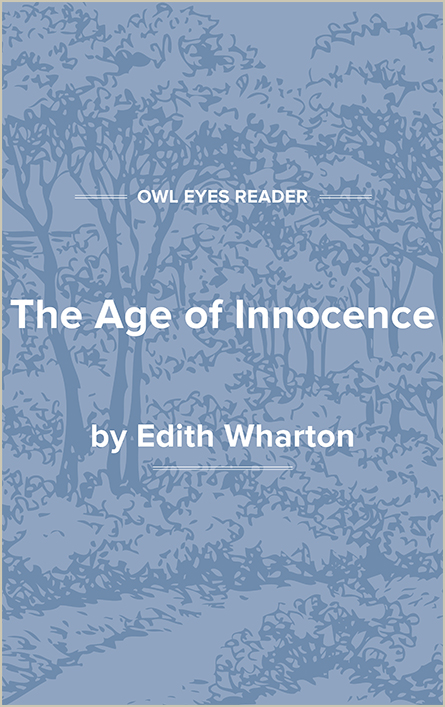Study Guide
Edith Wharton Biography
Edith Wharton was born Edith Newbold Jones on January 24, 1862, in New York City. Her parents, George Frederic and Lucretia Rhinelander Jones, were descendants of early English and Dutch settlers and belonged to the pre-Civil War New York aristocracy, families whose wealth consisted largely of Manhattan real estate and who constituted in their common ancestry, landed wealth, and traditional manners a tightly knit, closed society. With the industrial expansion that occurred during and immediately after the Civil War, the old society was “invaded” by a new class of self-made rich men such as John Jacob Astor and Cornelius Vanderbilt. Whereas the old society had lived unostentatiously, observing, outwardly at least, a strict code of manners—the women presiding over a well-regulated social life and the men making perfunctory gestures at pursuing a profession—the new rich spent lavishly, built expensive and vulgar houses, and behaved in ways the old order found shockingly reprehensible. With its energy, its money, and its easier morality, the new order inevitably triumphed over the old, and this displacement of New York society constituted one of the chief subjects of Wharton’s fiction, particularly in The House of Mirth and The Custom of the Country.
Wharton was educated at home by governesses and, later, tutors, and it was expected that she would assume the role young women of her class were educated to play, that of wife, mother, and gracious host. From an early age, however, Wharton showed intellectual and literary talents that, along with an acute shyness, kept her at the edge of conventional social life and later threatened to consign her at the age of twenty-three to a life of spinsterhood—the worst fate, so it was thought, that could befall a young woman of her class. After one engagement had been called off (because the young man’s mother opposed it) and a promising relationship with a young lawyer, Walter Berry (who later became a close friend), had failed to develop romantically, Wharton married a man twelve years her senior, Edward “Teddy” Robbins Wharton, a friend of her favorite brother.
Teddy Wharton was a socially prominent Bostonian without a profession or money of his own; James and other friends in England were later incredulous that Wharton could marry someone so obviously her intellectual inferior and so incompatible in his interests. Nevertheless, the marriage in the beginning must have been a liberation, both from the social pressure to marry and from her mother’s domination. Wharton was close to her father, but there was a coolness between her and her mother that is frequently reflected in her fiction in the portrayal of mother-daughter relationships. By marrying Teddy, she was at last free to come and go as she pleased; to establish her own residence, which she did on a grand scale at Lenox, Massachusetts; and to travel abroad as often as she liked. In time, however, the marriage to Teddy became irksome, partly from lack of deep affection for him but also because of his increasing bouts of depression and, later, his financial and sexual irresponsibilities. After revelations of his mismanagement of her estate and his adulterous affairs, she divorced him in 1913. In researching for the biography of Wharton, Lewis found that she, too, had had a brief but intense affair in 1908 with an American journalist named Morton Fullerton, and that relationship had a profound influence on her fiction.
Wharton had lived and traveled in Europe as a child with her parents and after her marriage had visited abroad as often as possible, alternating the seasons between her house at Lenox and an apartment in Paris, with shorter visits to England and rural France. In 1903, when she met James in England, there began an important friendship, with frequent visits and exchanges of letters and motor trips in Wharton’s powerful automobile. The Whartons always traveled in luxury, and their style and Edith’s energy...
(The entire page is 1,056 words.)
Owl Eyes subscribers get unlimited access to our expert annotations, analyses, and study guides on your favorite texts. Master the classics for less than $5/month!

